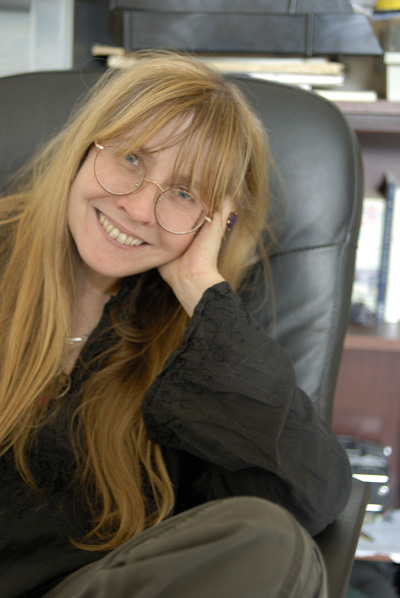Computers are increasingly being used by those seeking sexual thrills and this use is helping inspire new and innovative technologies, according to a cybersex expert from University of Portsmouth.
Dr. Trudy Barber is delivering a lecture on the subject at a Royal Society of Medicine ‘Sexual Pleasures’ conference this week in which she will explain how fetishism and deviation in sexuality are helping change the way people use new technology and can even influence the invention of new technology. She doesn't say what those are but it's worth consideration.
Barber is a Senior Lecturer in the School of Creative Arts and Media (SCAFM) at the University of Portsmouth. She wrote her doctoral thesis on ‘Computer Fetishism and Sexual Futurology: Exposing the Impact of Arousal on the Technologies of Cyberspace and has spent years researching how people’s sexual choices help shape new technology, including the internet, which she likens to the development of video players which brought pornographic films into the home in the late 1970s.

True, VCRs won because the porn industry adopted them but that was a cost issue, not a technology one. Various video codecs have been created for efficient video transmission but no developer set out to make a better codec so that porn manufacturers could use it for free and get rich.
“People are inspired by their own sexual inclinations which results in some innovative uses of technology,” she said. “Nothing shocks me now although I’m frequently surprised at how ingenious people are in order to obtain sexual satisfaction.”
Dr. Barber’s research has led her to internet sites such as Second Life, an internet-based virtual world where ‘Residents’ assume an alter-ego called an avatar to interact with each other online. She has found that people there are quick to adopt the sexual practices from their regular lives into their second life.
She said: “The role of deviation as a key to innovation must not be overlooked as it will contribute to our understanding of new intimacy, culture and the future of developing information and communications technologies.”
Dr Barber lectures on Media Studies, Cybercultures and Social Theory courses within the University’s School of Creative Arts and Media (SCAFM).






Comments